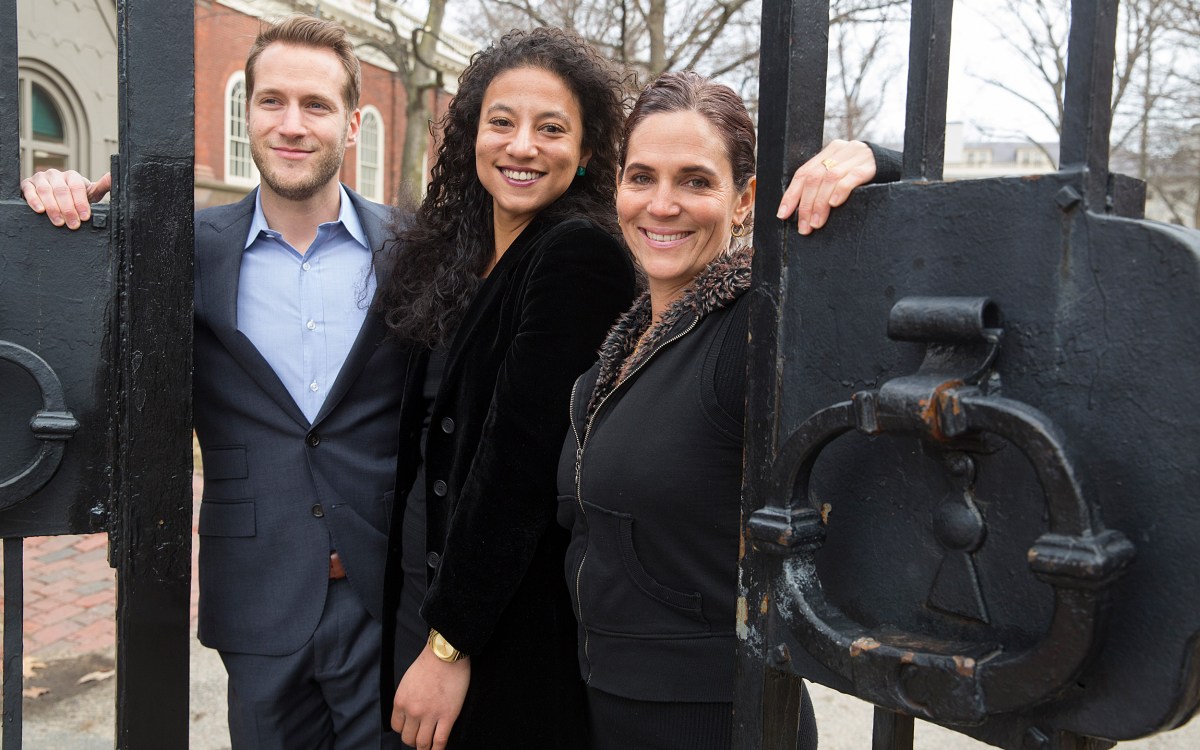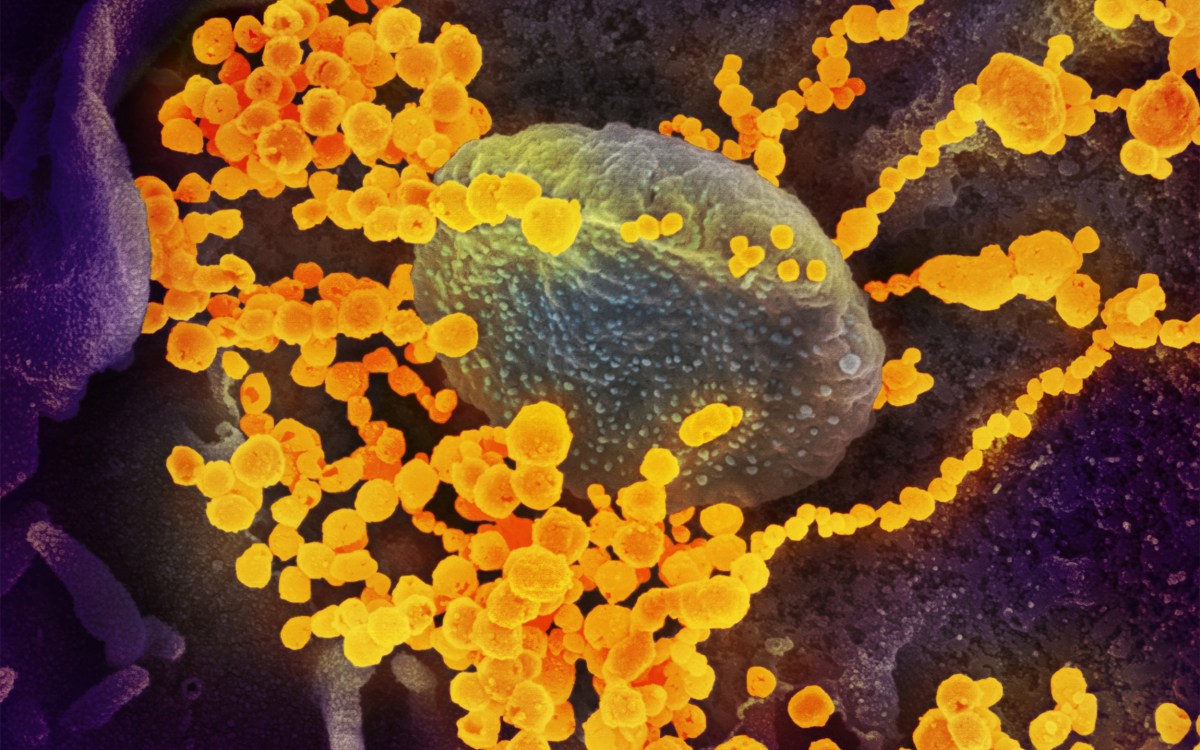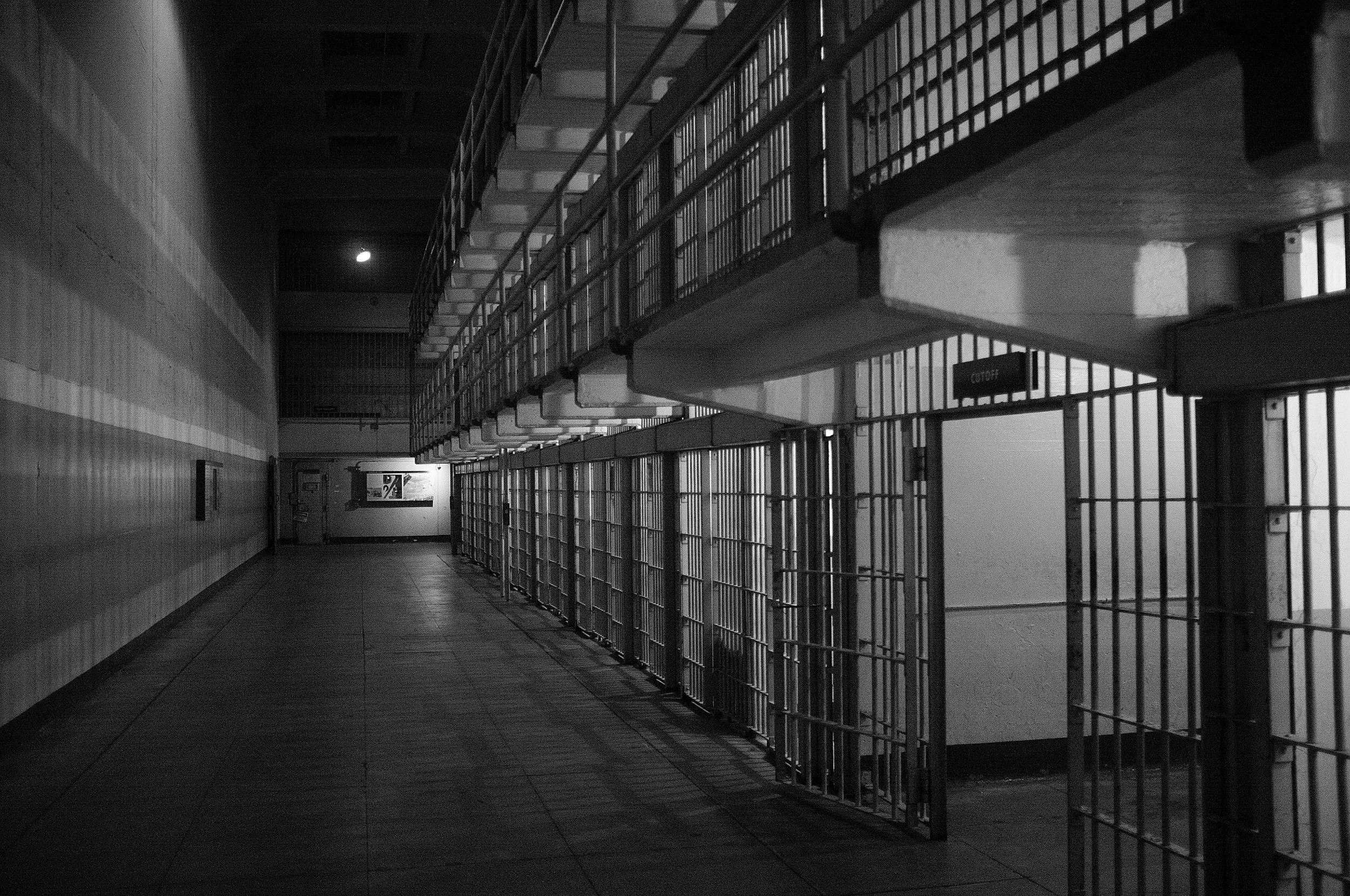
Unsplash
In prisons, a looming coronavirus crisis
Harvard professors call for reducing populations, warning of rapid spread amid crowded conditions and large numbers of older inmates with chronic conditions
This is part of our Coronavirus Update series in which Harvard specialists in epidemiology, infectious disease, economics, politics, and other disciplines offer insights into what the latest developments in the COVID-19 outbreak may bring.
As the world scrambles to respond to the coronavirus pandemic, Harvard experts across the University are trying to help one of the most vulnerable populations survive the crisis.
More than 75 faculty members from the Harvard T.H. Chan School of Public Health and Harvard Medical School sent a letter Tuesday to Massachusetts Gov. Charlie Baker urging him to reduce the state’s incarcerated population, a group that could be particularly subject to the rapid spread of COVID-19.
The letter outlined 15 recommendations, including requiring correctional facility administrators to make their plans for prevention and management of coronavirus outbreaks publicly available; expedited consideration of parole or release of inmates age 50 and older and those with chronic, potentially complicating conditions; and testing of inmates and corrections staff who become ill.
“This pandemic is shedding a bright light on the interconnection of all members of society. Jails, prisons, and other detention facilities are not separate; they are a part of our community,” the letter read. “As experts in public health and medicine, we believe these steps are essential to support the health of incarcerated individuals, who are some of the most vulnerable people in our society; the vital personnel who work in prisons and jail; and all people in the state of Massachusetts.”
“This crisis demands that we examine and address inequality across society.”
Tomiko Brown-Nagin
According to the federal Bureau of Justice Statistics, roughly 1.5 million people were in prison, and approximately 750,000 people were being held in county and city jails in 2017. Taken together, the figures make the U.S. the world’s leader in incarceration.
The nation is also faced with an aging prison population, with many older inmates suffering from underlying conditions that put them at the greatest risk for the severe complications associated with COVID-19. In recent weeks officials and advocates across the country have been calling for the release of those who are ill or elderly or those who have been convicted of nonviolent offenses as a way to slow the spread of the virus. On Tuesday, the Massachusetts Supreme Judicial Court heard arguments in a petition by the state’s public defenders, various district attorneys, and the ACLU of Massachusetts, among others, seeking the release of vulnerable inmates and pretrial detainees.
Add to those voices that of Tomiko Brown-Nagin, dean of the Radcliffe Institute for Advanced Study, who supports the release of certain inmates and says that the current crisis reflects the history of the nation’s unfair treatment of those too long considered “outcasts.”
Dean of the Radcliffe Institute for Advanced Study Tomiko Brown-Nagin encourages humane and constitutional treatment of incarcerated people.
Rose Lincoln/Harvard file photo
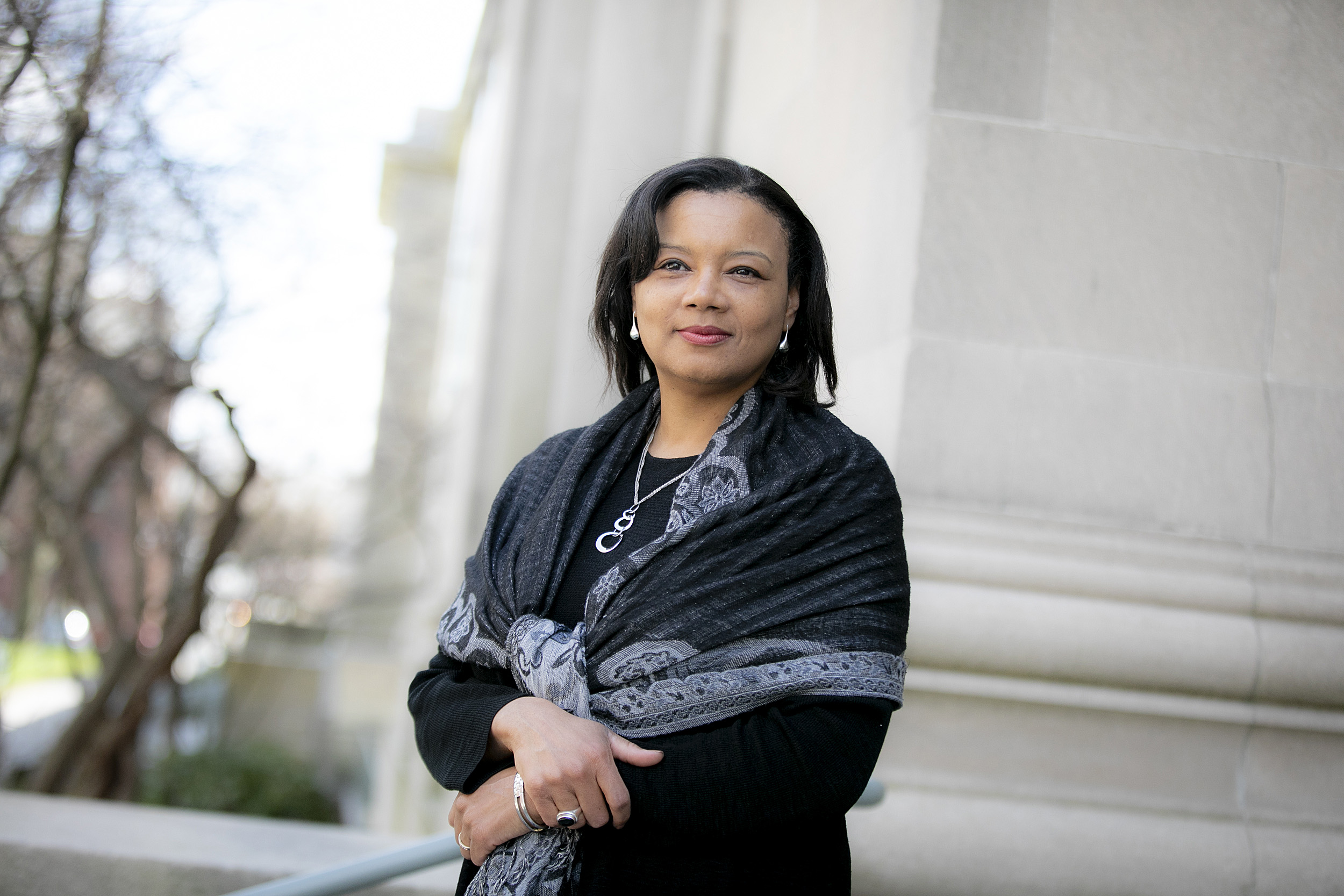
“There was no sense that they needed to be treated humanely, no guarantee of safe, sanitary conditions, or adequate medical care under the law until the 1960s, in the context of Civil Rights and prisoners’ rights movements,” said Brown-Nagin, who is also the Daniel P.S. Paul Professor of Constitutional Law at Harvard Law School. “It was only in ’60s that the Supreme Court and then the lower courts determined that prisoners do not lose their constitutional rights when they enter these institutions.”
In recent weeks, officials in cities across the U.S. have been releasing some of their most vulnerable inmates to keep the virus from spreading. Health experts note that living in quarters so close that it is not possible to keep six feet from another person — the guideline recommended by the Centers for Disease Control and Prevention — means the virus can be transmitted easily to both inmates and those who work with them.
In a recent New York Times op-ed piece, Mary Bassett, director of Harvard’s François-Xavier Bagnoud Center for Health and Human Rights and a former New York City health commissioner, along with Eric Gonzalez, the district attorney of Brooklyn, and Darren Walker, president of the Ford Foundation, praised New York Gov. Andrew Cuomo for releasing 1,000 people from the state’s jails and prisons, but they implored him to do more.
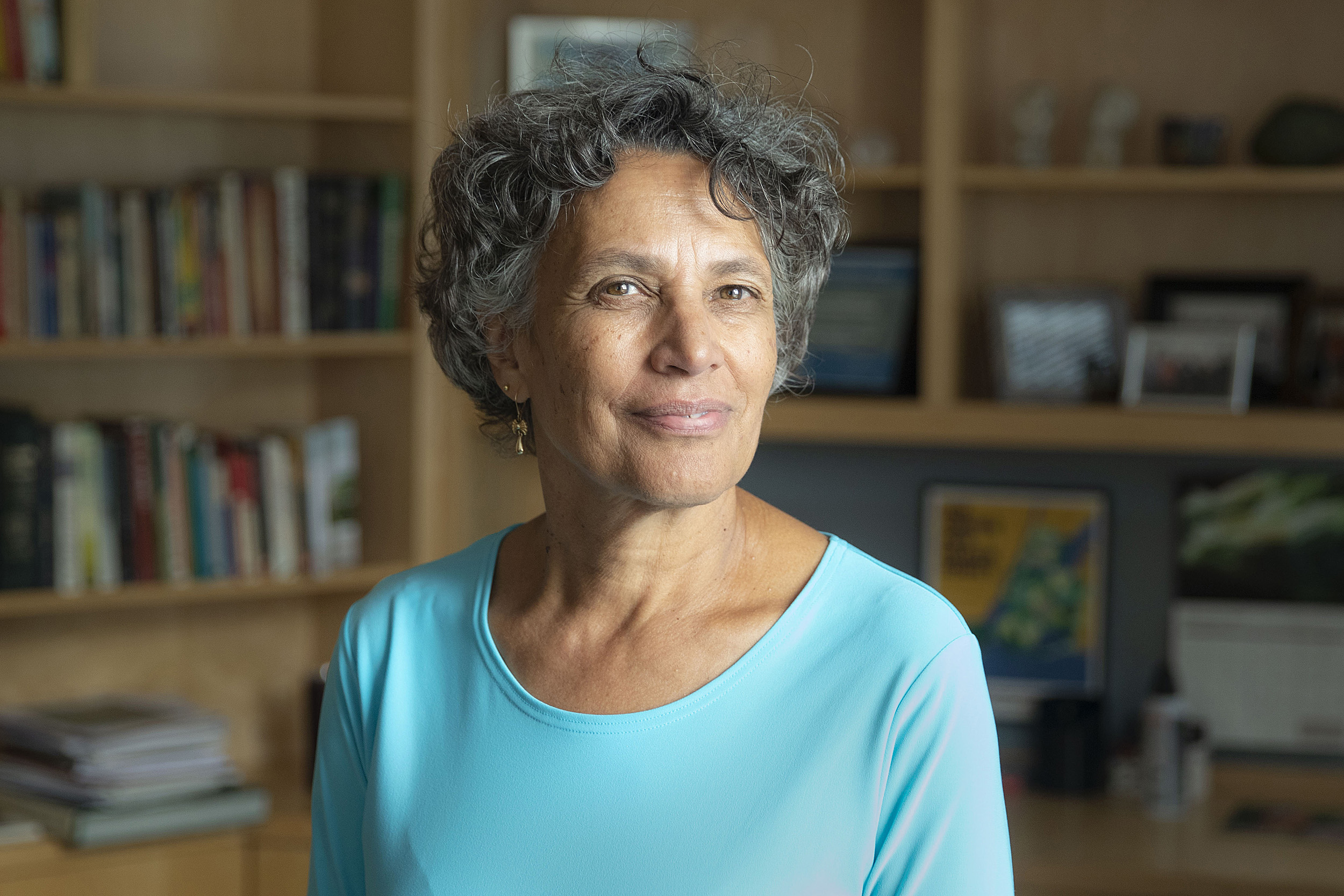
Mary Bassett urged New York’s state government to continue to provide protection from the pandemic to the prison population.
Kris Snibbe/Harvard file photo
“Given the conditions in which incarcerated people live — limited access to soap and water; shared bathrooms, mess halls, and living quarters — this population is especially vulnerable to the virus, and largely unable to prevent its spread. In New York, we’ve already begun to see the effects. Dozens of residents and correctional staff members have tested positive. More will follow … When officers and staff members who work in prisons get infected, they will bring the virus home to their families.”
In addition to making the case for compassionate release, Kaia Stern, a practitioner in residence at Radcliffe and executive director of the nonprofit Concord Prison Outreach, which offers inmate educational programs, has been urging those in charge of Massachusetts’ prison population to increase emergency supplies and ease certain restrictions on items such as sanitizers with alcohol or bleach that are considered contraband.
“People who are incarcerated and the people work in jails and prisons need critical items such as masks and gloves,” said Stern. “We know that people in jails and prisons have disproportionate communicable diseases such as tuberculosis, hepatitis C, HIV/AIDS, and that we are on the cusp of a public health and humanitarian crisis that’s about to explode.”
For Brown-Nagin, prisons and jails are among the many segments of society reeling from the novel coronavirus, exposing deep social and economic inequality in the process.
“I do think it’s an inflection point for all kinds of questions that we’ve been grappling with as a society for many years,” she said. “That was true of The Great Depression, which gave rise to any number of innovations, remedies at the state and especially the federal level, to address the crises in communities wrought by the economic downturn. Similarly, this crisis demands that we examine and address inequality across society.”



